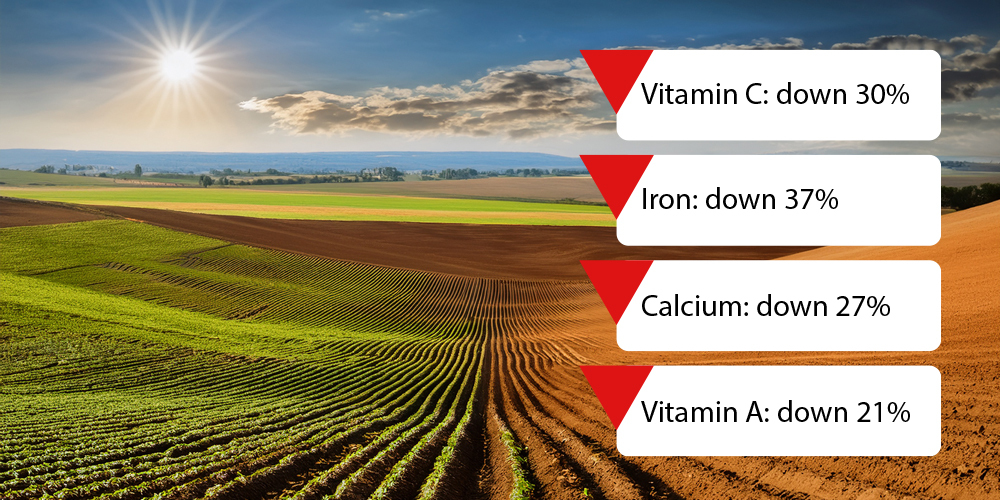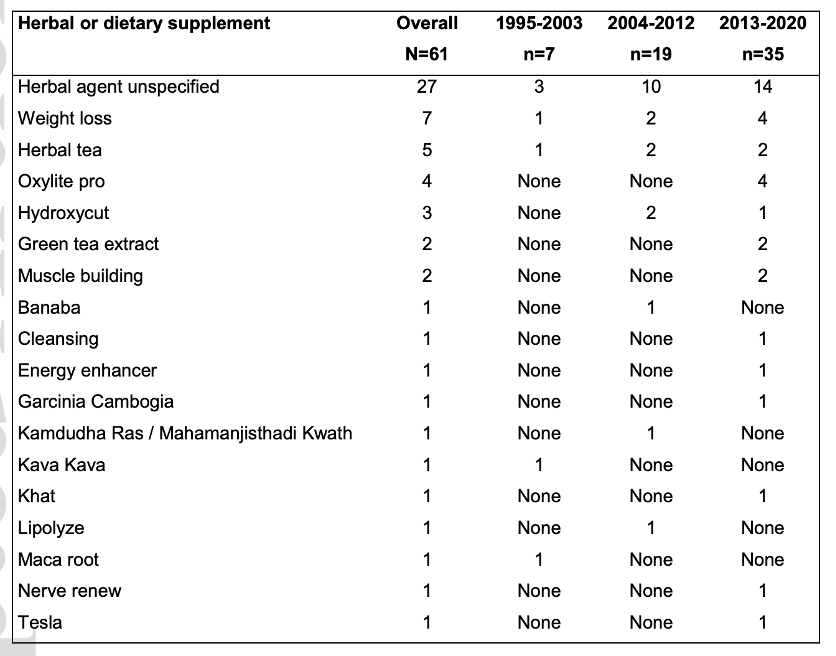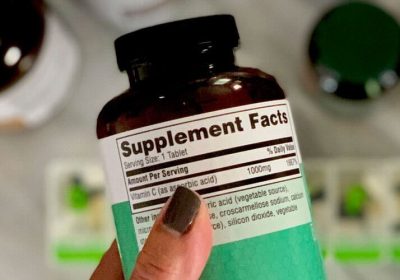Millions of Americans are thriving outside the medical mainstream with natural health strategies—but their success stories are largely invisible to policymakers and are being erased by biased reporting and billionaire-backed agendas pushing a pharma-adjacent model of care. Action Alert!
Listen to the audio version of this article:
THE TOPLINE
- The “missing healthy” are a large, invisible population using healthy diets, supplements and lifestyle medicine to maintain vibrant health—yet their experiences are largely ignored in mainstream research and media.
- The “Food is Medicine” movement, funded by powerful institutions like the Rockefeller and Gates Foundations, promotes a controlled, pharmaceutical-adjacent vision of wellness while dismissing the need for supplementation in a nutrient-depleted food system.
- Contrary to fear-driven headlines, supplements are not only extraordinarily safe when used as intended, but essential for filling widespread nutritional gaps, rebalancing immune, metabolic, hormonal and neurological pathways, and empowering individuals to take charge of their health amid a failing conventional medical system.
There are untold numbers of Americans who live outside the conventional medical system—not because they are neglecting their health, but because they have found a different path. Their stand-out health status remains invisible to ‘the system’ because they don’t show up among the chronic disease statistics operated by health systems that are pre-occupied with disease, not health. They are the “missing healthy”—those who thrive using natural approaches, who take responsibility for their well-being through nutrition, dietary supplements, herbs, lifestyle modifications, homeopathy, other forms of energy medicine—and a multitude of other non-conventional modalities.
You won’t find these people represented in mainstream studies telling us which interventions work or don’t work. But they (we) exist—and they’re thriving in ways that challenge the very foundations of today’s medico-industrial complex.
So when National Geographic recently published a hit piece on dietary supplements—parroting alarmist soundbites and painting vitamins as dangerous snake oil—it didn’t just get the science wrong. It’s part of a long-term trend that erases an entire population that is proof of another way.
The Billionaire-Backed Bias of the “Food is Medicine” Movement
One of the article’s key sources is Dr. Dariush Mozaffarian, a prominent voice in the “Food is Medicine” (FIM) movement, which is heavily promoted and bankrolled by none other than the Rockefeller Foundation and the Bill and Melinda Gates Foundation.
This is no coincidence. The Rockefeller Foundation, infamous for shaping post-WWII Western medicine around patented pharmaceutical drugs, is now repackaging its message under the wholesome-sounding banner of “Food is Medicine.” But make no mistake: this is a top-down, pharma-adjacent model of healthcare masquerading as holistic care. And it leaves no room for the decentralization and empowerment that true natural health represents.
Mozaffarian and others in the FIM camp suggest we should “get our vitamins from food.” It sounds reasonable, but, as we’ve shown previously, it totally misses the mark.
The Nutrient Crisis: Why “Food Alone” Is Not Enough
Modern agriculture has stripped our soils—and our food—of critical nutrients. Studies comparing nutrient levels in crops from the 1950s to those in the late 1990s found alarming declines:

The cause? Soil degradation, erosion of plant biodiversity, chemical inputs, and industrial farming practices that destroy the microbiome of the soil—the very ecosystem plants depend on to uptake nutrients.
In contrast, research shows that fruits and vegetables grown using organic and regenerative farming practices can contain up to 30% more antioxidants than conventionally grown produce.
So when academics insist food alone can meet our nutritional needs, they’re working from an outdated, idealized version of the food system that no longer exists.
Supplements Fill the Gaps—And Go Further
Government surveys show most Americans are deficient in key nutrients:
- 90% don’t get enough vitamin D
- 51% lack enough vitamin A
- Majorities fall short on magnesium (60%), vitamins E (94%) and K (71%), and potassium (97%)
And that’s just to meet the government benchmarks set not for optimal health, but to prevent diseases of deficiency like rickets and scurvy. We broke some of these data down in recent coverage, showing how far most Americans are from achieving optimal nutrient levels.
The idea that we don’t need supplements if we eat a healthy diet is a fiction when most of our food is nutritionally impoverished.
In the face of widespread nutrient depletion, supplements are one of the few tools people have left to take control of their health.
But What About Safety?
The National Geographic article leans on two studies suggesting a dramatic rise in supplement-related liver failure. We debunked one of these weak studies last year. Let’s look at the second study, which warns that, “over the last quarter century, there has been an eight-fold increase in [dietary supplement] related liver failure necessitating waitlisting for liver transplantation in the US.
Sounds scary—until you look at the data.
Here’s what the study actually found. Over 26 years, just 61 cases of drug induced acute liver failure were attributed to supplements. That’s less than 3% of all cases. Meanwhile, acetaminophen (Tylenol)—a staple of the medical system—accounted for over 70% of liver failure cases.
The study’s “eight-fold increase” in supplement-related liver damage? That means the number of cases went from 7 to 35 over a quarter century. This is hardly an epidemic. It’s statistical smoke and mirrors designed to frighten the public and justify more regulation.

Why the “Missing Healthy” Matter
The real story isn’t in these cherry-picked stats or elite-backed narratives. It’s in the missing data—the millions of natural health users whose vibrant health is invisible to the system because they don’t end up in doctors’ offices or hospitals, meaning they aren’t captured in data systems used by peer-reviewed research. And then we hear that the “research” doesn’t back up the fact that supplements, including high dose supplementation, can help prevent disease or achieve optimal health.
And that’s exactly why they’re ignored. Big Pharma and their government friends want to maintain the illusion that drugs are the only thing that can treat or prevent disease.
A Call to Action
At ANH-USA, we believe in a healthcare system that respects individual autonomy, values scientific integrity, and empowers people to take charge of their own well-being. We reject narratives—like those promoted by National Geographic and the FIM movement—that pathologize self-care and vilify the tools people rely on to stay healthy. The truth is clear: supplements save lives, fill nutritional gaps, and support true health sovereignty. It’s time to stop letting billionaire-backed institutions dictate what health should look like. It’s time to stand up—for supplement freedom, for honest science, and for the millions of “missing healthy” who are quietly proving there’s another way.
We’ve long championed a transformation that includes redefining the outdated legal lines between food and medicine. To help bring about a system that recognizes the healing power of natural foods and medicines, take action today: send a message to Congress urging support for policies that protect access to truthful information about supplements and natural health products.




With over 50 years study and use of supplementation and no medications except thyroid, I have used food and supplements as medicine. I and my 3 children are a testament.
FIM isn’t saying supplements are bad. Just unnecessary for most people if they eat the right foods. And if you’re getting your nutrients via food intake, supplements can do more harm than good if one goes overboard with them. Though most supplements can be megadosed, and have no ill effect, there are some that do.
I don’t want them treated as pharmaceuticals. That would be insane. But we should bring the FIM movement into the fight. I believe in FIM, and I also believe that supplements can be necessary so should be available and affordable. Unlike most drugs.
Why do you not discuss that the supplements are manufactured by the pharmaceutical companies? Home grown and wild foraged plants and herbs are the only real medicine.
Supplements are NOT manufactured by Pharma companies! If they were, this would not be an issue. “Foraging in the wild” and herbs is all well and good, but it’s not an option for most people.